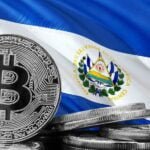Bank of Spain Governor Warns About Traditional Banking’s Exposure to Crypto Assets – The Bank of Spain’s Governor has issued a public warning about the risks of mixing regular institutions with crypto assets in the economy.
According to Pablo Hernández de Cos, financial institutions’ risks would increase if they had direct or indirect exposure to these assets De Cos also cautioned that, while this exposure is now limited, it is rapidly expanding as these platforms incorporate crypto services.
The Governor of the Bank of Spain, Pablo Hernández de Cos, has warned against integrating cryptocurrencies into the regular banking system because of the risks. De Cos made these statements during the inaugural session of the II Finance Observatory, which examines the state of the finance and insurance industries.
Also Read: Intel Reveals Bonanza Mine BMZ1 Blockchain Accelerator Mining Chip
According to the Governor,
Increased direct and indirect exposure of banks to the crypto-assets sector would jeopardize their equity and reputation.
He went on to explain that some crypto assets, particularly stablecoins, have become competitors for banks and financial institutions due to their relationship to national currencies, and that they may operate as a store of value.
While banks’ exposure to digital assets is still limited, according to de Cos, it is growing as third-party crypto goods and the services that banks must provide to cryptocurrency businesses expand.
However, the governor claims that these will be the first economic effects of widespread bitcoin use. The effects that would follow would be far more terrible. In a volatility event, De Cos writes, “A worldwide panic might stress the money markets and, by extension, infect the firms that operate as custodians of the hedge assets.”
Bank of Spain Governor Warns About Traditional Banking’s Exposure to Crypto Assets – De Cos also cautioned that one of the worst outcomes of crypto adoption would be the country’s “Cryptoization,” which would make it impossible for the country to manage its monetary policy.
Also Read: Russian Social Media Network Vkontakte to Introduce NFT Support
On the subject, he stated:
This type of dynamic, among other things, jeopardizes monetary autonomy and erodes the ability to exert effective control over international capital flows.
The ability of authorities to enforce AML legislation appears to be impaired as a result of the widespread usage of these instruments. Last year, Spain introduced an obligatory registry for VASPs operating on Spanish soil, as part of a cryptocurrency regulatory framework aimed at preventing the use of digital assets for criminal reasons.




